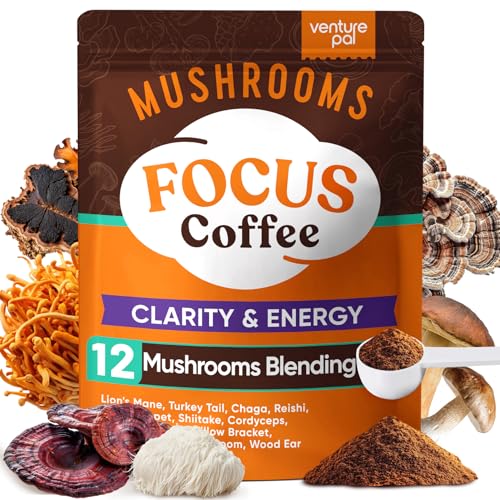Can Coffee Beans Be Used as a Repellent?
You can use coffee beans as an effective, eco-friendly insect repellent. Their strong aroma masks scents that attract mosquitoes and other pests. Let's examine how to use them. Start by choosing unflavored varieties like Arabica or Robusta; these have stronger aromas. Use methods like the sprinkling technique—spreading used grounds in areas with mosquitoes, or even burning them for a more potent effect. For ideal results, apply regularly, especially after rain. This approach is not only safe for households, maintaining good air quality, but it's also a sustainable alternative to chemical repellents. Uncover further to fully grasp their diverse uses.
Key Takeaways
- Coffee beans and grounds repel insects, including mosquitoes, due to their strong aroma.
- Burning coffee beans enhances their aroma, making them more effective as a repellent.
- Arabica and Robusta beans are most effective; avoid flavored beans like vanilla.
- Regular application, especially after rain or wind, is necessary for consistent effectiveness.
- Coffee grounds are eco-friendly, contributing nitrogen to soil and supporting sustainable pest control.
How Coffee Beans Repel Insects

Although you mightn't think of coffee beans as anything other than a morning pick-me-up, they actually serve another purpose: repelling insects. Coffee grounds are a natural insect repellent due to their strong smell, which masks the scents that attract mosquitoes and other pests.
These aromatic compounds create a barrier, much like citronella does, discouraging insects from entering treated areas. When you burn coffee beans, the released aroma acts effectively to keep mosquitoes at bay, allowing you to enjoy your outdoor spaces without interruption.
Using coffee grounds in your garden can also deter pests while being beneficial to plant health. As these grounds break down, they provide beneficial nitrogen to the soil, enhancing the growth of your plants.
This method stands as an eco-friendly alternative to chemical-based products, promoting sustainable pest control. Not only do you keep mosquitoes and other insects away, but you also contribute positively to your garden's ecosystem.
Let's investigate how this innovative approach can alter your gardening and outdoor experiences. By incorporating these simple yet effective techniques, you'll find a practical and environmentally conscious solution to pest management.
The addition of coffee grounds to your garden can improve soil drainage while attracting beneficial earthworms that help maintain healthy soil structure.
Types of Coffee Beans to Use
Choosing the right type of coffee beans can greatly enhance your pest-repelling efforts. When selecting coffee beans to use as a repellent, focus on unflavored varieties such as Arabica and Robusta. These types of coffee beans produce grounds with strong aromatic compounds, powerful enough to repel mosquitoes effectively.
Freshly brewed coffee grounds work best, as the aroma is at its peak immediately after brewing. This aroma is vital because it's what mosquitoes find so off-putting.
Avoid flavored coffee beans, like vanilla or caramel, since their additional scent profiles can dilute the repellent effect. Instead, opt for the pure, unflavored beans to guarantee your efforts aren't wasted. Additionally, burning coffee grounds can enhance their aroma, making them a potent option for deterring mosquitoes and other pests.
Interestingly, used grounds from brewed coffee are still effective and can be gathered for free from coffee shops. These free coffee shops often offer used grounds, which you can repurpose to help control mosquito populations around your home.
Robusta beans are particularly effective due to their higher caffeine content and stronger, bolder aroma compared to other varieties.
Effective Application Methods

Applying coffee grounds effectively can greatly enhance your pest-repelling efforts. Let's investigate some methods to guarantee ideal mosquito control using natural mosquito repellent techniques.
1. Sprinkling Method
Spread used coffee grounds in mosquito-prone areas of your garden. This creates a barrier that repels mosquitoes with its strong smell.
It's an effective way to use coffee grounds and keep pests at bay.
2. Burning Technique
To amplify the aroma, ignite dry, used coffee grounds in an outdoor container.
The burning technique releases a strong scent that masks human odors, making it an effective mosquito deterrent.
3. Repellent Spray
Create a concentrated repellent spray by boiling coffee grounds in water.
Apply this solution to outdoor areas for enhanced protection against mosquito attraction.
This method combines convenience with effectiveness, offering a powerful way to deter pests.
For a thorough approach, mix coffee grounds with other natural repellents like citronella oil.
This combination approach broadens the range of pests deterred.
It's vital to practice regular maintenance by reapplying coffee grounds after rain or wind to maintain their effectiveness.
This guarantees a consistent barrier against mosquitoes, giving you peace of mind in your outdoor spaces.
Frequency and Environmental Impact
When using coffee grounds as a mosquito repellent, it's vital to apply them regularly to maintain their effectiveness. Refresh your coffee grounds every few days, especially after rain or strong winds, to guarantee optimal mosquito control. They can also attract earthworms naturally while serving as a repellent.
Environmental factors like humidity and temperature can greatly impact mosquito activity, so adjust your application frequency based on these local conditions.
Application Frequency
Frequent application is essential for maintaining coffee grounds as an effective repellent. As mosquitoes thrive in humid conditions, you might need to apply them more often during rainy seasons or when the air is thick with moisture.
Pay attention to weather patterns in your area, and don't hesitate to increase frequency if needed.
Environmental Impact
Coffee grounds are an eco-friendly alternative to chemical repellents, promoting sustainable practices that are kind to the environment. They contribute beneficial nitrogen to the soil, improving soil health and supporting plant growth.
However, overuse can disrupt nutrient balance, so it's important to monitor and limit the quantity you use. By using coffee grounds responsibly, you help maintain a healthy ecosystem while effectively managing mosquito populations.
Let's investigate how you can integrate this sustainable method into your gardening routine, guaranteeing both effective mosquito control and lively plant life.
Advantages and Limitations

While coffee beans offer a natural and eco-friendly alternative to chemical repellents, they come with their own set of advantages and limitations.
Let's examine these aspects to understand how coffee grounds can play a role in mosquito control for households.
Advantages
1. Natural Repellent: Coffee grounds, when burned, release a strong aroma that deters mosquitoes and other pests. This natural method masks the scents that attract these bothersome insects.
2. Eco-Friendly: Unlike chemical sprays, coffee beans don't contain harmful substances, making them a safer option for families, especially those with pets and children.
It's a sustainable choice that aligns with environmental concerns.
3. Safe for Households: Because coffee beans lack toxic chemicals, they provide a preventive measure that doesn't compromise indoor air quality or pose health risks.
Limitations
1. Variable Effectiveness: The effectiveness of coffee beans as a mosquito control tool can fluctuate based on mosquito species and environmental conditions.
It's not a one-size-fits-all solution.
2. Complementary Use: Coffee beans alone mightn't eliminate mosquitoes entirely.
Combining them with other natural repellents and preventive measures can enhance their overall effectiveness.
Coffee beans have potential as a mosquito repellent, but it's important to understand and manage their advantages and limitations for ideal use.







